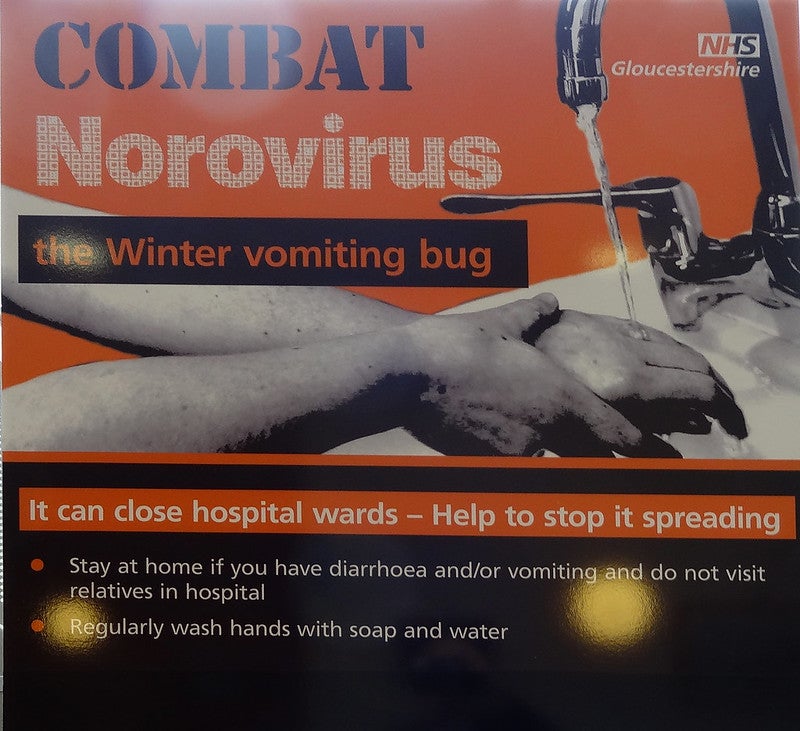Wisconsinites have been affected by a series of foodborne illnesses over the last two months, including a newly confirmed outbreak of E. coli linked to McDonald’s hamburgers.
On Oct. 22, the Centers for Disease Control and Prevention confirmed one Wisconsinite has been affected by the ongoing outbreak that is likely caused by onions served on Quarter Pounder hamburgers. The food was sold at McDonald’s restaurants primarily in western states like Colorado, but also in Iowa and Missouri.
In September, eggs from a Wisconsin producer led to 93 cases of salmonella infections across the United States. More than half of the cases were in Wisconsin, and the outbreak led to 34 hospitalizations across the country.
Stay informed on the latest news
Sign up for WPR’s email newsletter.
Earlier this month, hundreds of retail stores in Wisconsin — including Walmart, Pick ‘n Save and Dollar General — were affected by a recall for ready-to-eat meats that may have been contaminated with listeria. There have been no reported cases of illness from the recalled products, according to the U.S. Department of Agriculture. At least one Wisconsinite was sickened by a separate Listeria outbreak from Boar’s Head deli meats in June and July.
While the different outbreaks have come in rapid succession, the number of illnesses being reported isn’t out of the ordinary, according to Kathleen Glass, associate director of the Food Research Institute at the University of Wisconsin-Madison.
“It just happens to be the luck of the draw that we’re seeing it in Wisconsin,” Glass said. “They are also very high profile because they have affected a number of people.”
She said raw foods, like the onions and eggs in recent recalls, carry a higher risk of contamination. That’s because processors can’t rely on heat to kill contaminants that are found in the environment where food is produced.
“Animals are not sterile; plants are not sterile,” she said. “When (a company is) processing, they can do the peeling and the washing and the disinfecting, but because they have such a large quantity of foods, they’re going through a lot, there is always that potential for cross contamination.”
Sanitation by processors key part of keeping food safe
Adam Brock, administrator of the food and recreational safety division at the Wisconsin Department of Agriculture, Trade and Consumer Protection, said sanitation is a key part of how food processors keep contaminants from spreading throughout a plant.
“If you don’t have proper sanitation in the plant, if equipment isn’t clean, there’s the potential for microorganisms to hide beneath some roller, under a belt, somewhere on a production line,” Brock said.
Brock said having consistent labor is a critical part of maintaining sanitation. He said it takes training and time to learn the skills needed to keep food and equipment clean.
During the COVID-19 pandemic, many food manufacturers struggled to maintain and recruit employees. Brock said he believes it’s likely one of the factors that led to an increase in food recalls by the Food and Drug Administration in 2022.
“People think it’s easy to say, ‘Hey, you know, it’s like going home and cleaning up my kitchen,’ but it’s not,” Brock said. “If we went in and swabbed our kitchens, we would probably find certain things too. It’s a little uncomfortable, but it’s the truth.”
Brock said food safety has been further complicated by the increasing complexity of food production. He said a prepared food with multiple ingredients comes from several different supply chains, all of which could introduce contaminants if proper sanitation isn’t followed.
Consumer food safety goes a long way in preventing illness
When compared with the amount of food that is consumed in the U.S. daily, Brock said the amount affected by recalls is relatively small. He said consumers should feel confident buying products from a grocery store and eating at restaurants, as long as they keep basic food safety in mind.
“You want to keep hot foods hot and cold foods cold,” he said. “If you don’t have that, it might be a little tip that the risk is slightly higher if you consume that product. It doesn’t mean you’re going to get sick, but everybody’s heard the story about pasta salad or coleslaw that’s been left out for too long.”
Glass said washing produce at home can be an extra protection for raw foods. And she said thorough hand washing can go a long way in preventing even contaminated foods from making people sick. She ended up having a carton of the Wisconsin eggs recalled for salmonella last month in her own fridge.
“That doesn’t mean that all of those eggs were contaminated, but also I cook my eggs, I wash my hands, and I prevent that cross contamination,” she said. “As a result, even if I did have that in my refrigerator, I wouldn’t have gotten sick because I handled them properly.”
When shopping for processed meats or similar foods, Glass said she looks for preservatives in the ingredient list that can help prevent bacteria like Listeria from growing in the fridge. She also suggests consumers keep their fridge slightly colder than the recommended 40 degrees Fahrenheit in order to further slow the growth of any potential contaminants.
Wisconsin Public Radio, © Copyright 2025, Board of Regents of the University of Wisconsin System and Wisconsin Educational Communications Board.






